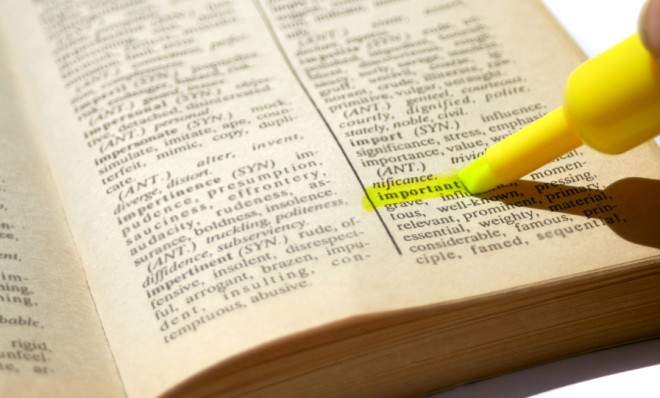Why other languages don't use thesauruses like we do
And other strange truths about these handy-yet-unsatisfying reference books

A free daily email with the biggest news stories of the day – and the best features from TheWeek.com
You are now subscribed
Your newsletter sign-up was successful
Thesauruses exist mainly for English. Few other thesauruses are compiled for other languages. (Japanese is a notable exception.) Why is this?
The richness of the English vocabulary and the wealth of available synonyms means that English speakers can often draw shades of distinction unavailable to non-English speakers. Modern English has an unusually large number of synonyms or near-synonyms, mainly because of the influence of very different language groups: Germanic (Anglo-Saxon and Old Norse, the main basis of English), Romance languages (Latin, French), and Greek. There are many sets of triplet synonyms from Anglo-Saxon/Latin/Greek and also Anglo-Saxon/Norman French/Latin-Greek like cool-calm-collected and foretell-predict-prophesy. Peter Mark Roget's intent was to catalog words by meanings, but he ended up inventing a new form of reference book.
And now a thesaurus is a reference work that lists, either A-to-Z by entry word or by hierarchically arranged concepts (e.g. Roget style), words grouped together according to similarity of meaning. They are called synonyms, even though there are few "true" synonyms in English. For the most part, these groupings are related words, some very closely related, enough to be called near-synonyms. They are lumped in a paragraph, sometimes separated by "sense" with semicolons — which can easily be missed by the users.
The Week
Escape your echo chamber. Get the facts behind the news, plus analysis from multiple perspectives.

Sign up for The Week's Free Newsletters
From our morning news briefing to a weekly Good News Newsletter, get the best of The Week delivered directly to your inbox.
From our morning news briefing to a weekly Good News Newsletter, get the best of The Week delivered directly to your inbox.
The main purpose of a thesaurus now is to help the users find the word, words, phrase, or phrases that fit the idea or concept they are trying to express. No thesaurus has all of the synonyms or related words for each word or phrase. Each thesaurus is different, but the goal is the same: to provide alternative ways of saying what you mean and to offer the distinctions between those alternatives.
An online thesaurus does not have space restrictions and can go into more detail about these distinctions or simply link to dictionary definitions. Users can examine those definitions to figure out the nuances of using the various related words and synonyms. A print thesaurus relies on users having a dictionary to peruse. In some print thesauruses there are special boxes which offer more information for some groups of words. In most cases, though, users shoulder a lot of the responsibility in understanding what they find in a thesaurus and then choosing the "right" word or phrase.
Oddly, thesauruses to date have not really "gone the distance" and are often unsatisfying to word lovers. Related words do not have much meaning if the relations are not described — which they are not in most thesauruses, even the online ones. This type of information is hard for a layperson, even a word lover, to put together. There's room in the reference world for a thesaurus of English with a full-blown collection of synonyms, near-synonyms, and related words — along with their relations, connections, and distinctions. And sprinkled on top of that, the antonyms, of course!
A free daily email with the biggest news stories of the day – and the best features from TheWeek.com
-
 How the FCC’s ‘equal time’ rule works
How the FCC’s ‘equal time’ rule worksIn the Spotlight The law is at the heart of the Colbert-CBS conflict
-
 What is the endgame in the DHS shutdown?
What is the endgame in the DHS shutdown?Today’s Big Question Democrats want to rein in ICE’s immigration crackdown
-
 ‘Poor time management isn’t just an inconvenience’
‘Poor time management isn’t just an inconvenience’Instant Opinion Opinion, comment and editorials of the day